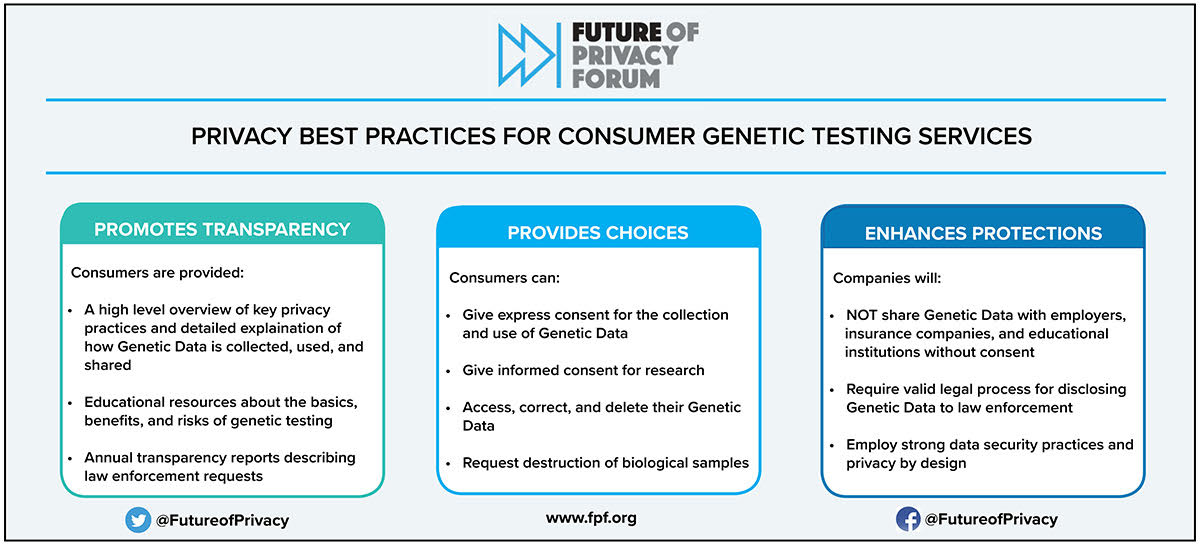Showing results for viiia20 pronged promised zimbabwe

40 Organizations Release Principles For School Safety, Privacy, and Equity
WASHINGTON, DC (March 27, 2019) – Today, FPF and 39 other education, privacy, disability rights, and civil rights organizations released ten principles to protect all students’ safety, privacy, and right to an equal education. The principles are meant to serve as a starting point for conversations with policymakers and school officials about how to keep […]

The Future of Ad Tech: A Discussion with FPF's Stacey Gray
Almost everyone has had a similar experience: visiting a website to shop for a product and then having an advertisement for that product “follow” them around the internet. Most free content today, from social media to news, is funded by ads. In order to deliver those ads and measure their effectiveness, companies today rely heavily […]

Artificial Intelligence: Privacy Promise or Peril?
Understanding AI and its underlying algorithmic processes presents new challenges for privacy officers and others responsible for data governance in companies ranging from retailers to cloud service providers. In the absence of targeted legal or regulatory obligations, AI poses new ethical and practical challenges for companies that strive to maximize consumer benefits while preventing potential harms.

Smart Communities: A Conversation with Kelsey Finch
One of FPF Policy Counsel Kelsey Finch’s areas of focus is Smart Communities, a field which draws from many of FPF’s issue areas. From her Seattle office, she has the opportunity to do hands-on work with cities in the Pacific Northwest. Last year, she worked with city officials on Seattle’s first Open Data Risk Assessment, […]

A New Year’s Resolution For Your New Devices
A New Year’s Resolution For Your New Devices Still thinking about your New Year’s resolutions? If so, the Future of Privacy Forum has a practical suggestion: Get to know the privacy implications of your new electronics. Early in the New Year, take a few moments to set up privacy features so you can be comfortable […]

Privacy Papers 2018
The winners of the 2018 PPPM Award are: Shattering One-Way Mirrors. Data Subject Access Rights in Practice by Jef Ausloos, Postdoctoral Researcher, University of Amsterdam’s Institute for Information Law; and Pierre Dewitte, Researcher, KU Leuven Centre for IT & IP Law Abstract: The right of access occupies a central role in EU data protection law’s arsenal […]

CCPA, face to face with the GDPR: An in depth comparative analysis
The General Data Protection Regulation (Regulation (EU) 2016/679) (‘GDPR’) and the California Consumer Privacy Act of 2018 (‘CCPA’) both aim to guarantee strong protection for individuals regarding their personal data and apply to businesses that collect, use, or share consumer data, whether the information was obtained online or offline.

September 24th in Detroit, MI: Data and Privacy for Autonomous Vehicles
Autonomous vehicles are positioned to transform the future of mobility—a change enabled by new on-board sensors that collect and transmit growing types and quantities of data. While the existence of data in vehicles is not entirely new, autonomous vehicles promise an explosion in the variety, connectivity, volume of such data—raising new and unique considerations around what happens with it. As the automotive industry becomes more data-driven, getting consumer privacy right will become increasingly important.

Privacy Best Practices for Consumer Genetic Testing Services
The Best Practices provide a policy framework for the collection, protection, sharing, and use of Genetic Data generated by consumer genetic testing services. These services are commonly offered to consumers for testing and interpretation related to ancestry, health, nutrition, wellness, genetic relatedness, lifestyle, and other purposes.

Custom Audiences and Transparency in Online Advertising
This morning, Facebook announced that they will begin rolling out new requirements for its “Custom Audiences” targeting tool for advertisers. These updates are a useful step towards creating better user understanding of data flows both on Facebook and in the broader web, and enhancing the accountability of advertisers who use custom marketing lists.
